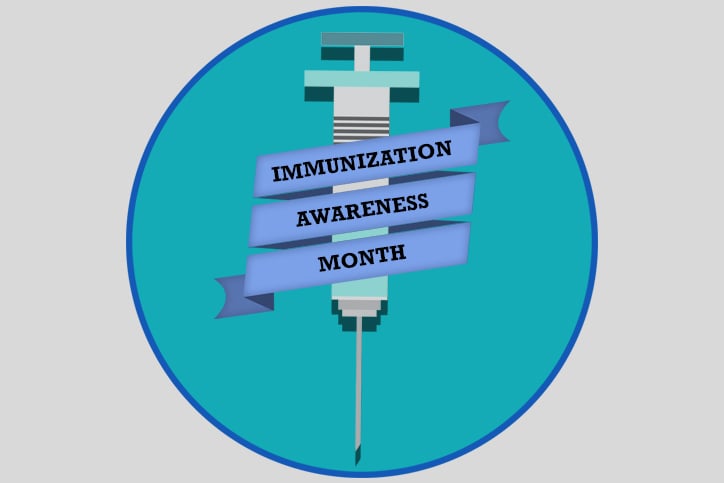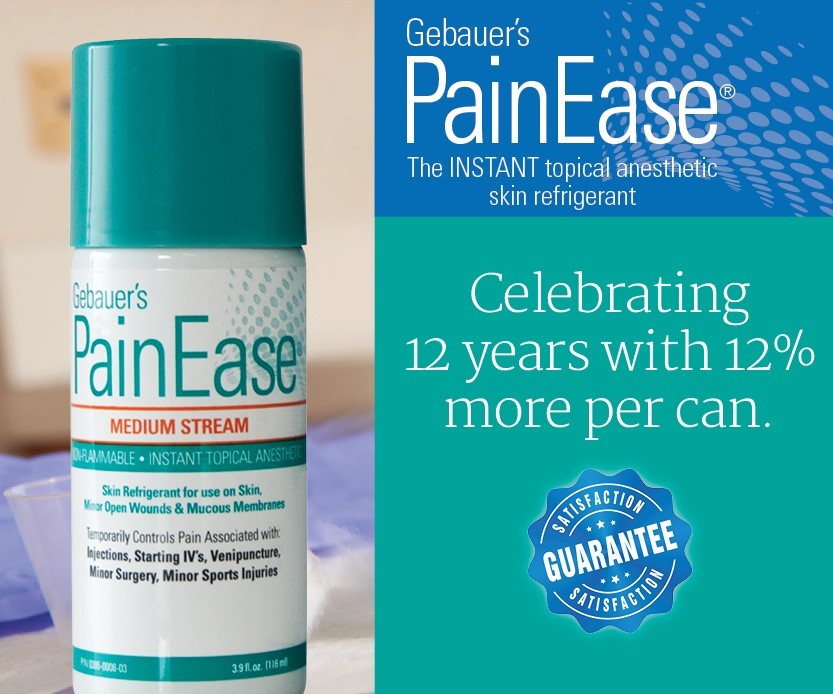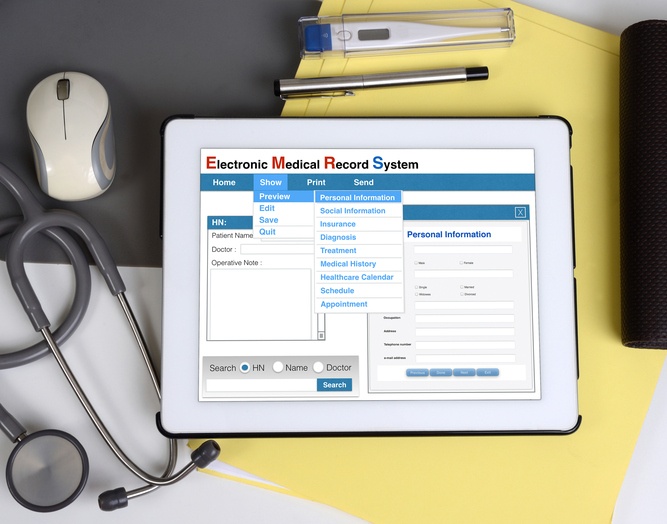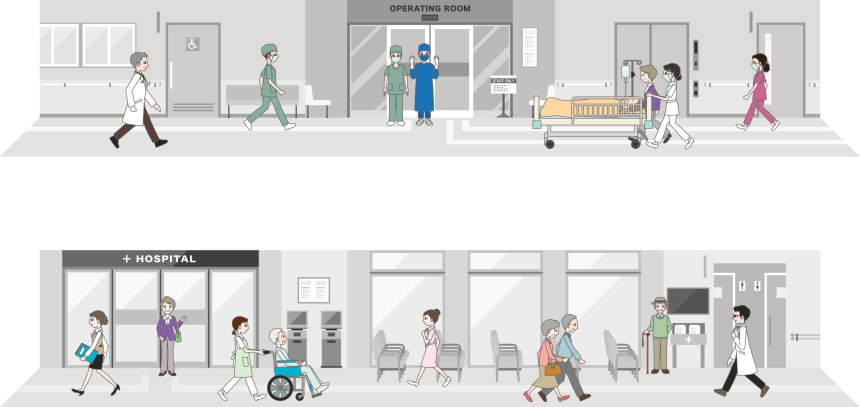“To cure sometimes, to relieve often, to comfort always.”
This quote, often attributed to Hippocrates, perfectly summarizes the mission statement of physicians worldwide. You strive, everyday, to cure ailments and relieve your patients’ symptoms, but success in these areas often depends on factors beyond your control. Relieving anxiety through patient comfort measures, on the other hand, is always within your power.
Unfortunately, in an effort to treat patients efficiently, and free up bed space, patient comfort sometimes falls to the wayside. Although you may have every intention of providing your patients with a comfortable experience, your ultimate goal is likely to treat as many people as possible within each shift.
While implementing additional patient care methods to your work as a doctor seems counterproductive to your goal of treating as many people as possible, there are plenty of methods to ensure patient comfort without adding to care time or impacting efficiency. Here are our top three suggestions:








-min-1.jpg)



















































%20copy.jpg)



































.jpg)












































 If you’re like most nurse managers, preparing the nursing department annual budget is not your favorite part of the job. The budgeting process can make even normally calm, collected nurse managers resort to a few choice words as they struggle to create a budget that won’t shortchange patients and nursing staff.
If you’re like most nurse managers, preparing the nursing department annual budget is not your favorite part of the job. The budgeting process can make even normally calm, collected nurse managers resort to a few choice words as they struggle to create a budget that won’t shortchange patients and nursing staff.










 Family members play an important role in a patient’s recovery. They’re often the ones who make sure their loved one takes medications, makes necessary lifestyle changes and follows aftercare recommendations. Although family members can provide the support recovering patients need, sometimes they become overly involved in the decision-making process.
Family members play an important role in a patient’s recovery. They’re often the ones who make sure their loved one takes medications, makes necessary lifestyle changes and follows aftercare recommendations. Although family members can provide the support recovering patients need, sometimes they become overly involved in the decision-making process. Attracting new patients is a constant concern for most
Attracting new patients is a constant concern for most  It may be a cliché, but your employees really are your most valuable assets. If you fail to create a strong work culture, you risk losing your best employees to your competitors. The entire hospital suffers when your top performers decide there are better places to work. Without the best and brightest, it’s difficult to create a positive culture that not only empowers and engages employees but also improves the patient experience.
It may be a cliché, but your employees really are your most valuable assets. If you fail to create a strong work culture, you risk losing your best employees to your competitors. The entire hospital suffers when your top performers decide there are better places to work. Without the best and brightest, it’s difficult to create a positive culture that not only empowers and engages employees but also improves the patient experience.
































 It’s one of the first procedures you learned in nursing school and, for many nurses working in a hospital environment, it can be one of the most common tasks you perform each day. IV starts have become so routine, you could probably do them in your sleep—though it’s likely frowned upon in most institutions. When it comes to starting IVs, you’re a seasoned pro.
It’s one of the first procedures you learned in nursing school and, for many nurses working in a hospital environment, it can be one of the most common tasks you perform each day. IV starts have become so routine, you could probably do them in your sleep—though it’s likely frowned upon in most institutions. When it comes to starting IVs, you’re a seasoned pro. There are plenty of things that change amidst the transition from childhood to adulthood. You no longer cry when your scoop of ice cream tumbles to the concrete, for example. And, more than likely, you no longer need the security of a teddy bear nightlight to ward off bad dreams. However, just because you’re paying your own bills and willingly consuming spinach doesn’t mean you’re suddenly immune to the pain and anxiety of a visit to the doctor.
There are plenty of things that change amidst the transition from childhood to adulthood. You no longer cry when your scoop of ice cream tumbles to the concrete, for example. And, more than likely, you no longer need the security of a teddy bear nightlight to ward off bad dreams. However, just because you’re paying your own bills and willingly consuming spinach doesn’t mean you’re suddenly immune to the pain and anxiety of a visit to the doctor.



 As a child life specialist, when you’re called to a patient’s room, you never know what awaits on the other side of the door. In some cases, your services are needed to help calm the nerves of a toddler before she receives a vaccine. In other cases, you may walk in to find a hysterical child and his equally terrified parents. Sometimes you can bring a situation under control in a matter of minutes, but some take much, much longer.
As a child life specialist, when you’re called to a patient’s room, you never know what awaits on the other side of the door. In some cases, your services are needed to help calm the nerves of a toddler before she receives a vaccine. In other cases, you may walk in to find a hysterical child and his equally terrified parents. Sometimes you can bring a situation under control in a matter of minutes, but some take much, much longer. For private practice office managers, hiring and recruiting is a time-consuming, expensive and, quite frankly, frustrating endeavor. From finding the right talent, to ensuring new hires are properly trained, getting the right employees in place requires a great deal of business resources. Not to mention, it’s pricey. It costs 20 percent of a worker’s $50,000 salary to replace them, according to the
For private practice office managers, hiring and recruiting is a time-consuming, expensive and, quite frankly, frustrating endeavor. From finding the right talent, to ensuring new hires are properly trained, getting the right employees in place requires a great deal of business resources. Not to mention, it’s pricey. It costs 20 percent of a worker’s $50,000 salary to replace them, according to the  Most of us are accustomed to seeing customer experience surveys from businesses like cable companies, retailers and automotive service centers. Days after you’ve purchased a product or paid for a service, you’ve probably received an email or automated phone call asking you to rank your satisfaction and share your comments. For many years, businesses have relied on customer feedback to measure success and improve processes. Today, however, you’ll begin seeing surveys from an unlikely source: your hospital.
Most of us are accustomed to seeing customer experience surveys from businesses like cable companies, retailers and automotive service centers. Days after you’ve purchased a product or paid for a service, you’ve probably received an email or automated phone call asking you to rank your satisfaction and share your comments. For many years, businesses have relied on customer feedback to measure success and improve processes. Today, however, you’ll begin seeing surveys from an unlikely source: your hospital.

 In the fast-paced environment of the emergency room, every second counts. From sprained ankles to minor lacerations to heart attacks, ER nurses are on the front line, and under pressure to provide care that is appropriate, efficient and compassionate.
In the fast-paced environment of the emergency room, every second counts. From sprained ankles to minor lacerations to heart attacks, ER nurses are on the front line, and under pressure to provide care that is appropriate, efficient and compassionate.
 “Is this going to hurt?” Nurses have been asked the question time and time again. When it comes to easing patient anxiety, the responsibility usually falls on nursing professionals.
“Is this going to hurt?” Nurses have been asked the question time and time again. When it comes to easing patient anxiety, the responsibility usually falls on nursing professionals.
